|
I spend a great deal of time and energy undoing a lot of what I was taught. I almost wrote, "learned" but it wasn't that I learned it. Certain things were planted into my head--and here I'm talking about in art school--that there are specific ways to do things. It's surprising how rigid the art world can be. In photography, when I pick up a camera, I am constantly trying to undo what was drilled into my head, what a "good" or "acceptable" print or picture is. I still embrace the word, image, though, simply because it embraces anything 2-D that the eye takes in. So, yes, I can make a "good" image with a camera. I can make a "pretty" picture. And sometimes I still have to. Don't expect a mainstream magazine, for instance, to go ga-ga over your art.
Yes, these images are intentionally overexposed. I started making them a few years ago when I unintentionally made some images of Sue at the beach, and had forgotten to change to ISO setting. Instead of seeing a mistake, I went with it, and have developed a way of seeing and making images that I can then transfer to acetate. I've been doing this for a couple of years now. There is more to it than the ISO setting. There are the other settings that interact and then, the most important part, the metering. But I came to all this from a "mistake".
0 Comments
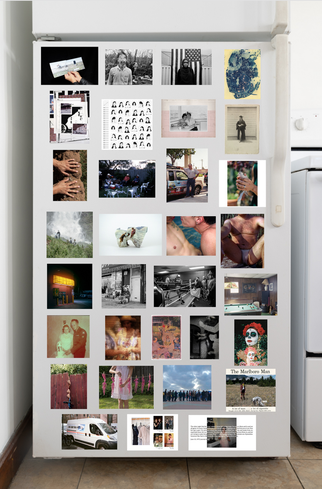 Click on the image to go to the exhibit. Click on the image to go to the exhibit. The Curated Fridge's Autumn 2020 show opened yesterday, and I was excited to learn the day before that they accepted one of my images. It's an exhibition I've always admired, and this was my third attempt. Third time a charm? That's my piece all the way at the bottom right. The curators were Raymond Thompson Jr. and William Camargo. The theme of this show was "Counter Archives." See the exhibition here >> From The Curated Fridge's website: "We want to reexamine the archive with a lens focused on what and who was left out. We are looking for work inspired by archives, whether it be written, oral, family stores, imagine pasts and futures, and beyond. We invite artists that work from archives and as well create a counter-narrative with their work." So...Counter Archives. 2020 saw me doing a lot of work on memory and family--the family archive in my mind and the one in pictures and in other people's memory--for a couple of reasons. In 2019 I had reconnected with my half-sister who I still haven't seen since I was 12 years old. But she and I have chatted on Facebook and talked on the phone about our past, our childhoods and how we were raised and what it's done to us, how it's made us who we are today. And two years ago I went back to the place of my birth after about 26 years. A lot of people told me they thought it would be good for me, that it would be good for my writing and my art. I was skeptical, and for the most part it brought up things in my past that I would have rather not have revisited. But the one thing that trip did was reaffirm that the best thing I ever could have done for my life was leave Ohio when I did. If I had stayed, I would have died, if not actually died, then metaphorically. The environment and my family would not have been a supportive environment for being and artist, and so much of what I value about the world and myself was not valued there and would have been destroyed, like flowers in the snow. It's not easy to dig into your past; it's a lot more fun to make ironic paintings of current events. With memory and family, I found myself really digging up old thoughts and feelings and addressing and responding to them, and then...dropping them. I couldn't handle the process without some real breaks. I've said many times, there's nothing like a really good repressed memory or feeling, and we human beings have developed them as defense mechanisms for a reason. There are a lot of things I just don't want to think about anymore. But...but...as hard and painful as it may be, it's important to look into the archive to see what's there. What was recorded, what wasn't recorded, and what was distorted. We are all the person we are today because of our individual pasts. For example, because of my past, I have almost zero trust in people, though I have to admit at times that has served me well, especially during my years as a journalist. (Journalists maxim: If your mother says she loves you, get two more sources.) My current editor told me recently that he assigned me to a certain story because he knew I wouldn't swallow the bullshit. Since November 2016, I had this feeling that the world is so familiar. All of this craziness and meanness, the lying and the instability that we see daily in the news. And then I realized, as a child this was how the world was in which I lived. I was constantly thinking about my family, "Can't you be fucking normal for one day?" And that's what I kept thinking about the current administration. If I can look at my past and see what it really was--the insanity, the shame, meanness--we as a nation can look at our past and face what was then, and what we've become of us now. Here's the piece that was accepted: And here are some of the other images in this series:
In the garden, as in how intimately you learn about each garden you make each year. Every garden is different, and as the seasons go on (it feels like fall today) I wonder how much time will I have left? Answer: That plot of land will be there in December. But as I have finally mustered the courage to pick up a paint brush again, my sense of color quickly changed, and it changed how I use a camera. When I say, In The Garden, I mean IN it. Inside it like a rabbit might see it. See it for all the magic and beauty and fantasy that's there. I have a little Fujifilm point-and-shoot that I bought while I was traveling in Canada when I once again had broken I think it was my third Nikon Coolpix. It's shock and water resistant and I carry it just about all the time. It's my little friend, my little sketchpad, and what I like most about it is I never know exactly what it's going to do. It gives me a lot of control, but many times it, well, it doesn't take over, but it's almost as if it says, wait a minute, why don't you look at it this way? It's still during the pandemic, when it seems it's still going to to be a year or more when I'm trapped in my apartment, on my porch, in my garden, when I'm almost too frightened to walk to the post office. When you jack the ISO all the way to 3200, the results look like charcoal drawings.
Today at the doctor's the PA said, you'll need about three or four months to recover; that's not really a lot of time, and I replied, yes it is. Someone died the other day--they were 71, and I thought, that's six years away for me. Imagine if you were told you were going to prison for six years. Imagine you were told you only had six more years to live. Covid-19, for me, made time very important. Now it might be two years before I can visit the Musee de Cluny again. See Barcelona. See Chaco. Hike the West Highland Way. And in those two years, who knows what may happen...to me...to things. For a claustrophobic, when your world locks down, when it closes in, in any way, it affects you. It affects your breathing. Three months ago, when Covid-19 became a real thing and anyone who had paid the least bit of attention in high school science class knew exactly what we were in for, the first thing I thought to jettison was achievement. Suddenly, my ego-driven desire for attention didn't seem all that important. I actually unfriended a bunch of people on Facebook who, truth be told, I was simply trying to impress. Suddenly, the idea of trying to impress some white, male, millennial with an intentionally bad haircut just to promote my images seemed awfully embarrassing. With Covid -19 we couldn't not only travel internationally, going to the grocery store became a major excursion. (Frankly, it still is; see above about high school science class.) Then I lost my passport and my knee flared up and wow, my world got really small. My world narrowed all the way down to my backyard vegetable garden. That was pretty much the only place I consistently go, and even then I'm like Christina's World, I hobble back there and then crawl around with my camera. But that narrowing and slowing down didn't go unnoticed. And that's where I am. My world got really small... Yesterday I made one image. One image I really liked. It made me happy to do it, and that was fine with me. It made me happy unlike the rejections I get when 800 people send in five images and mine wasn't one of the 4,000 the curator had to choose from. (How fucking ridiculous is that?) Or it made me happy, unlike the feeling I get when only five people give one of those hearts on IG. (How fucking pathetic is that?) So for now, if anyone wants me, I'll be out back, crawling around with a DSLR with a 35 mm lens attached--a lens that I used to use all the time but for some reason traded it in for a 70 - 100 mm zoom--and sometimes a flash. And if I can make one good image, the day is pretty good. That's how small my world has gotten. |
Author
John Greiner-Ferris is a politically motivated, multi-disciplinary artist in the Boston area. Sometimes he makes images. Sometimes he writes. Sometimes he does both. Archives
May 2024
Categories
All
|
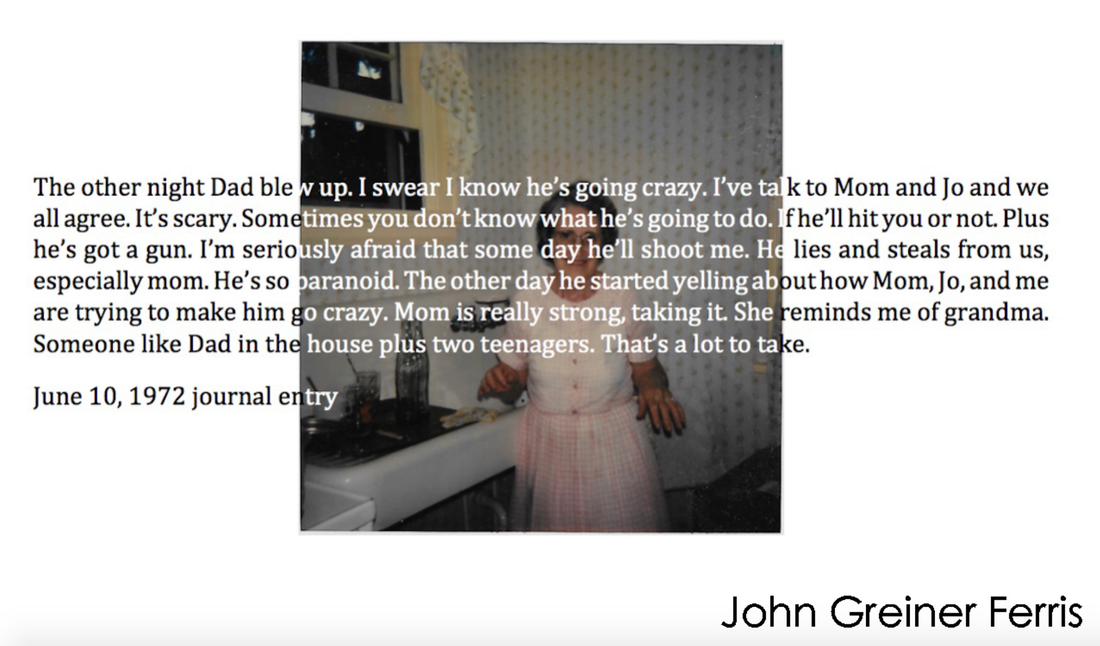
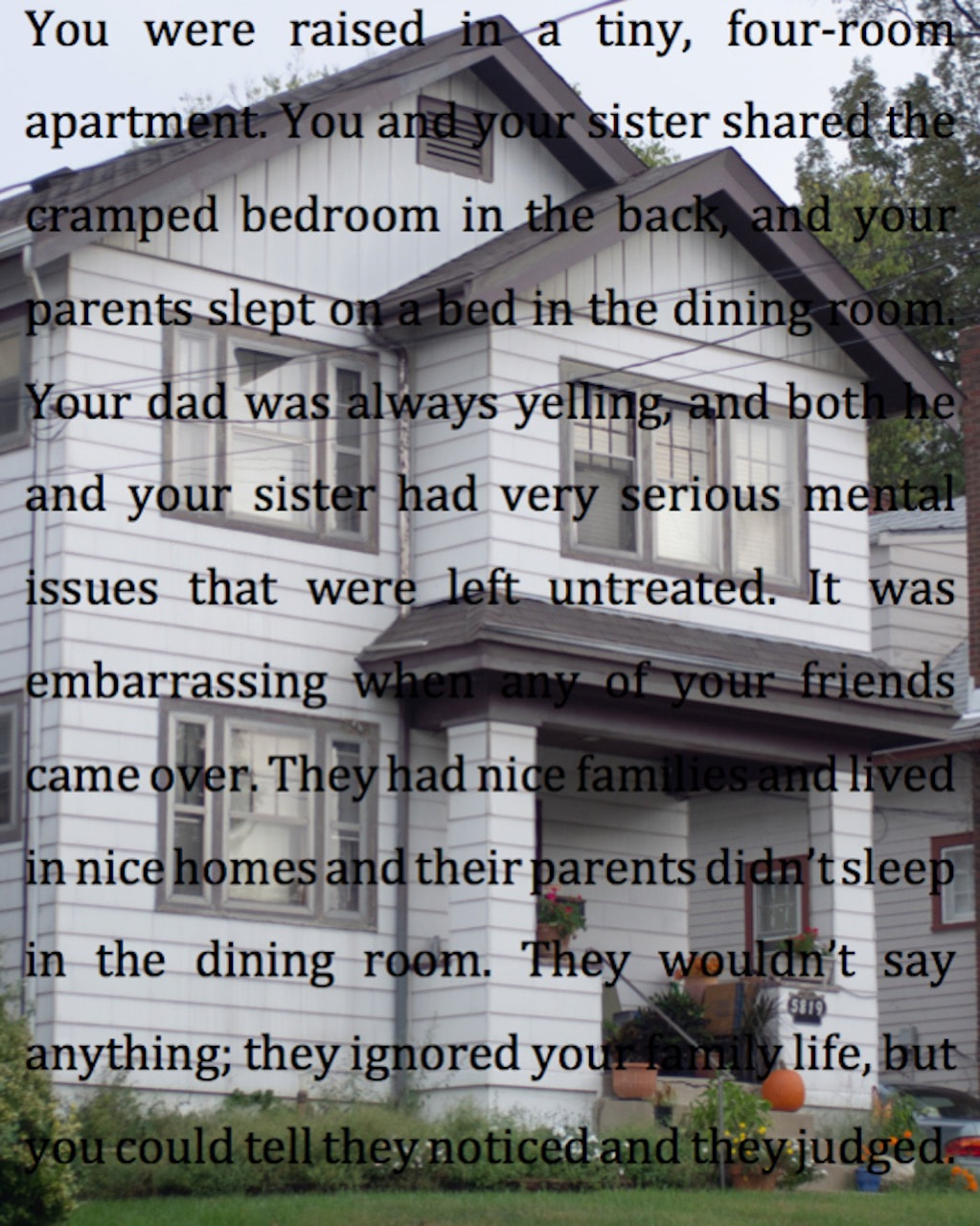
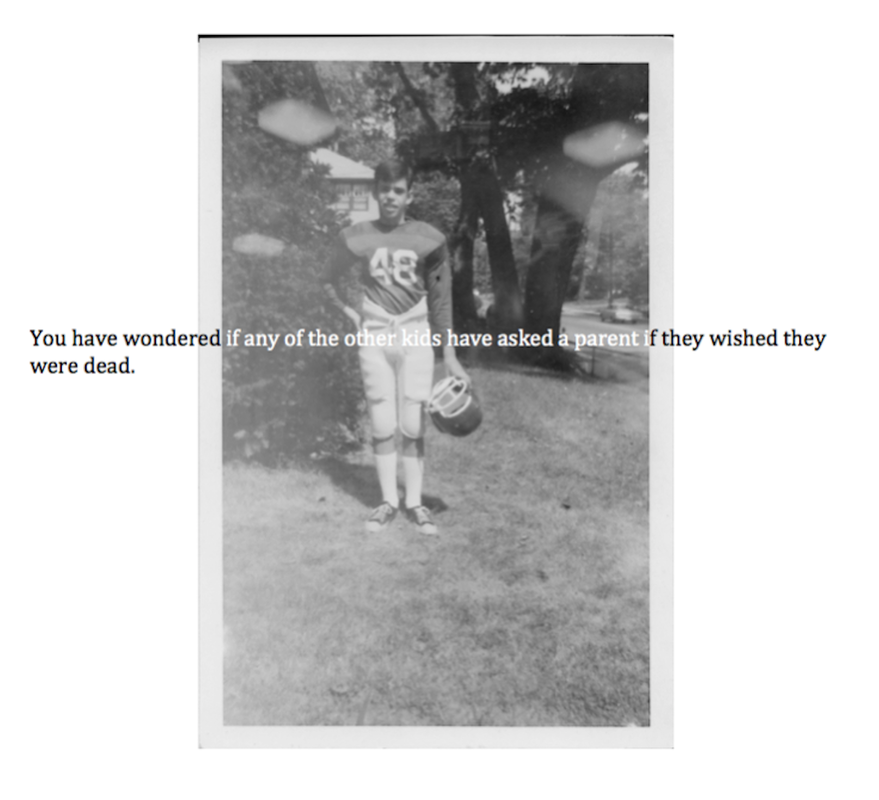
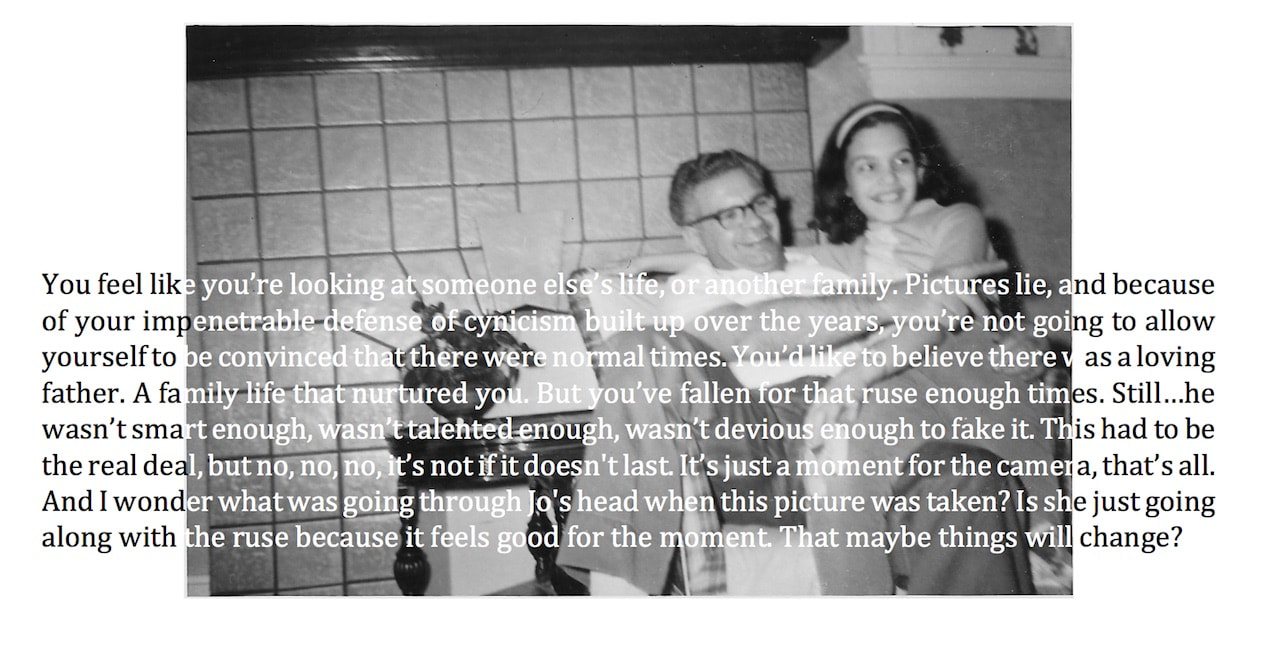
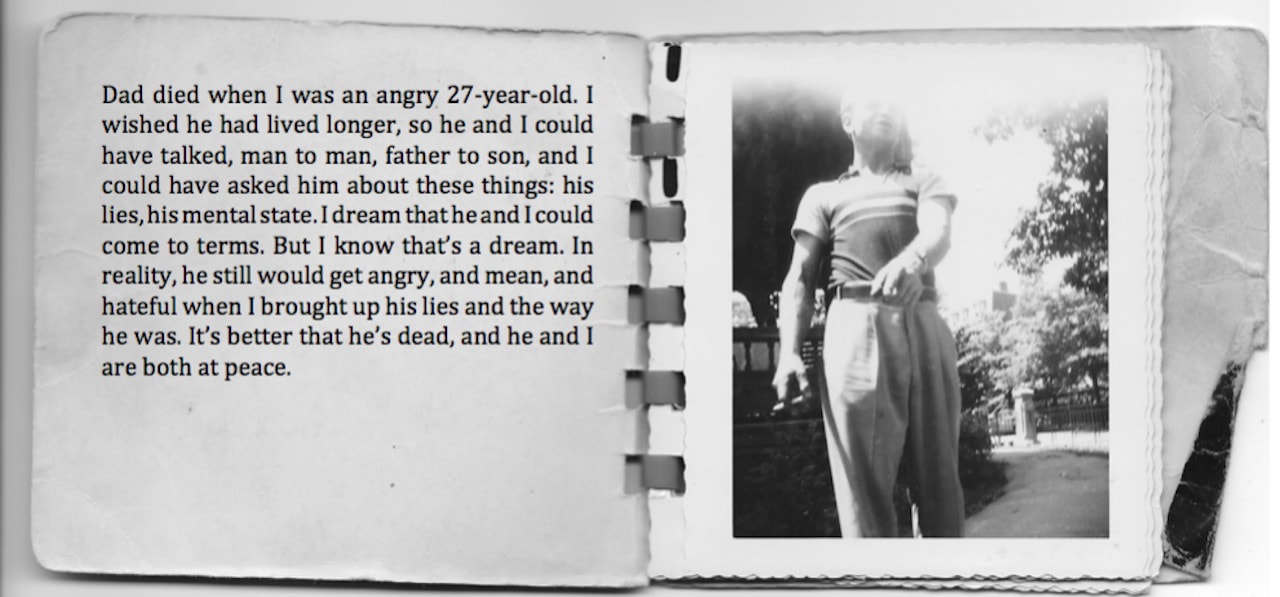
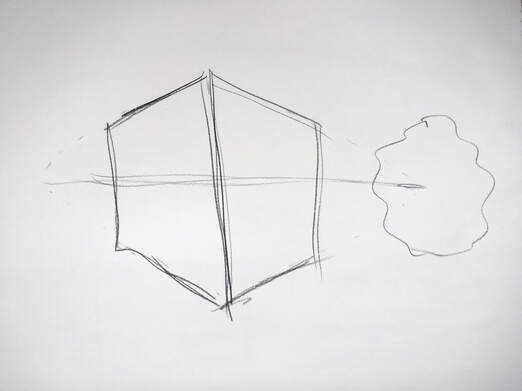
 RSS Feed
RSS Feed
